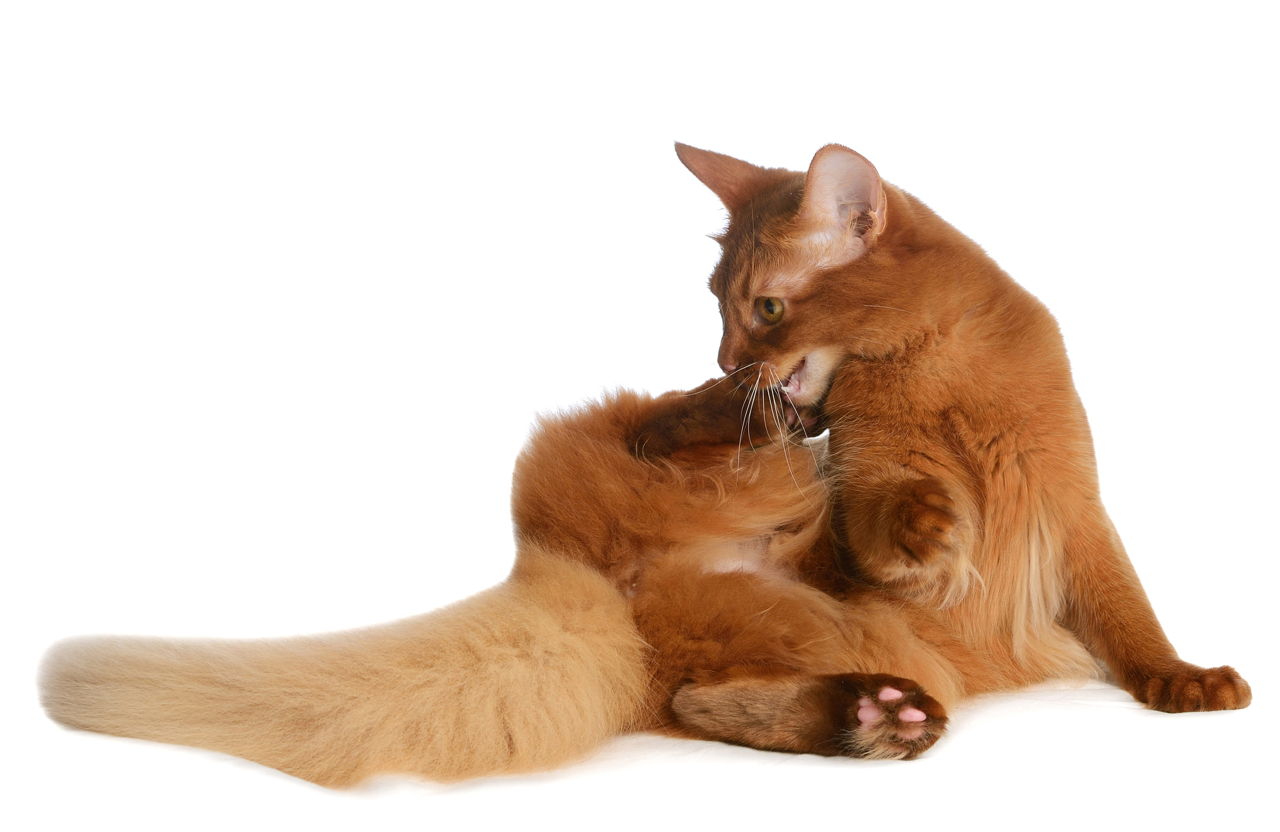
Fleas are wingless bloodsucking insects that reside on your pet’s body, and cause considerable loss of blood over a period of time. This can eventually cause several health problems like anemia in your feline friend. Find out more facts on cat fleas, and how to get rid of them by reading this CatAppy article.
Fleas are wingless insects of the order Siphonaptera that thrive in a moist and humid environment, and suck blood from warm-blooded vertebrates like humans, cats, and dogs. A flea infestation is quite common in cats, and there can be several types of fleas that can reside on their body.
However, the most common type of cat flea is Ctenocephalides felis. Fleas can be quite hard to get rid of, and it can sometimes cause severe allergic reactions in cats. Moreover, these insects are known to carry the larvae of tapeworms. So, if your cat ingests them while grooming, she may get a tapeworm infestation.
Flea Infestation in Cats
The main symptom of a flea infestation is itching, which can sometimes compel the animal to scratch the site of the insect bites quite vigorously. However, itching can be caused by several other factors as well. Some cats can be allergic to the substances found in the saliva of fleas. This can produce an allergic reaction, which can eventually cause dermatitis, hair loss, and the development hot spots and dry patches on the skin.
Occasionally, a severe flea infestation can also result in a significant loss of blood, which can eventually cause anemia and haemobartonellosis. Haemobartonellosis is a severe type of anemia caused by the microorganism H.felis, which are carried by fleas. In addition to these, cats with fleas are also more susceptible to tapeworm infestations.
How to Identify Fleas?
It is quite important to find out if your cat really has a flea infestation, as symptoms like itching and skin irritation can be produced by several other conditions as well. The best way to confirm the presence of fleas is to comb the animal thoroughly with a fine-toothed comb or a flea comb. If you see black dots on the comb, it indicates that fleas are present on your pet’s body.
Otherwise, you can comb the cat over a piece of white paper or cloth, which can help you identify fleas or ‘flea dirt’ more easily. Flea dirt is actually the excreta or waste matter discharged by fleas. If you smash the dirt, you can spot some reddish-brown stains on the paper or cloth. This is nothing but the undigested blood of the cat.
Flea Control
A lot of patience is required to eradicate fleas, as you have to remove them not only from the body of your pet, but also from the surrounding environment. To get rid of fleas, first of all, you have to clean your entire house thoroughly. To begin with, vacuum your house, especially the carpets, pet bedding, mattresses, and the upholsteries on a daily basis. But be sure to seal the vacuum bag properly, and dispose the content of the bag outside your house immediately.
Along with vacuuming, consider steam cleaning the carpets. Be sure to wash your pet’s bedding in hot, soapy water at regular intervals. You can mix some bleach in the water before using it for washing your pet’s bedding. You should also give your cat a bath with a shampoo to get rid of fleas completely. Also use a flea comb to remove as much fleas as possible from its body.
Nowadays, several topical flea control products are available in the market, that can be applied on your pet’s skin. Even flea sprays are widely used to control the population of this insect. Such sprays usually contain an insect growth regulator which breaks the life cycle of fleas, in order to control their population.
Veterinarians may sometimes suggest the use of oral medications that contain a compound known as ‘Lufenuron’, which prevent the hatching of the flea eggs. Such medications can be mixed with food. Another way to destroy these insects is to use a flea collar. However, such collars can emit a poisonous gas, which can be harmful for your pet’s health.
Natural Remedies
Certain home remedies can help control the growth of fleas. A few of the most common natural remedies used for this purpose are, essential oil, garlic oil, and vinegar. Garlic oil, if applied topically can repel fleas, and also prevent future infestations. Similarly, essential oils can also help, but please check with a veterinarian before giving your cat an essential oil bath, as some cats can be sensitive to the oil.
You can mist your carpet and the pet’s bedding with diluted vinegar to get rid of fleas. Another effective remedy is hydrogen peroxide. The usual method is to place the cat in a tub, and apply diluted hydrogen peroxide on its body. However, one should be extremely careful while doing so. The pet owners should make sure that hydrogen peroxide does enter the eyes, mouth, and the nose of the animal.
If a flea infestation is not very serious in nature, it can be eradicated with the aforementioned steps. But sometimes, you may need the help of a professional, if the infestation is quite severe. However, before using any kind of flea sprays, powder, or chemicals on your pet, be sure to consult a veterinarian.
Disclaimer: This article is for informative purposes only, and should not be treated as a substitute for the medical advice of a veterinarian.


